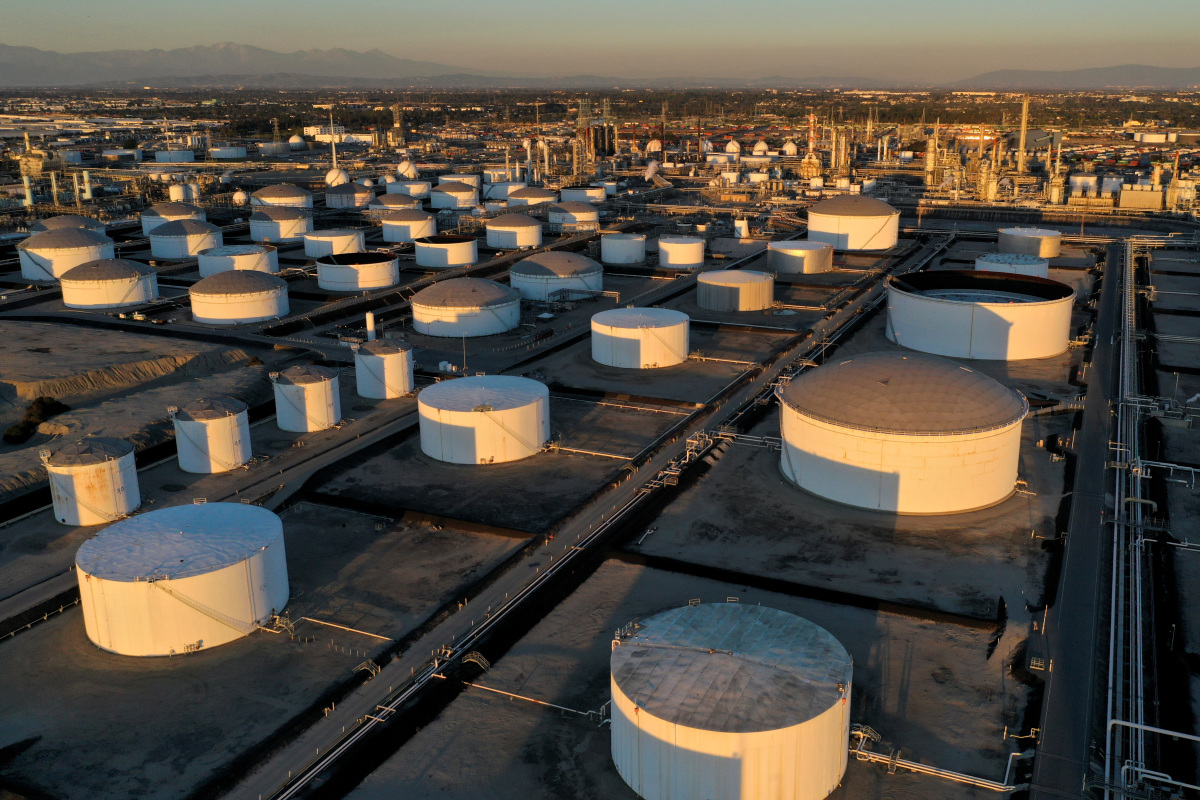Reuters
Oil prices rose to three-week highs on Tuesday as China’s latest easing of COVID-19 restrictions spurred fuel demand hopes, while concerns that winter storms across the United States are affecting energy production continued to support prices.
Brent crude was up 52 cents, or 0.6%, at $84.44 a barrel by 0712 GMT, while U.S. West Texas Intermediate crude was at $80.04 a barrel, up 48 cents, or 0.6%. They hit their highest since Dec. 5 earlier in the session.
On Friday, Brent rose 3.6%, while WTI gained 2.7%, as they recorded their biggest weekly gains since October.
British and U.S. markets were closed on Monday for the Christmas holiday.
China will end its quarantine requirements for inbound travellers starting on Jan. 8, the National Health Commission said on Monday, dropping a rule in place since the start of the pandemic three years ago. That raised optimism of higher demand from the top crude oil importer.
“Oil demand recovery is in sight for China, which is great news for the refining sector,” said Serena Huang, head of APAC analysis at Vortexa.
The greenback softened after China said it would drop its quarantine rule. A weaker dollar makes oil cheaper for holders of other currencies.
Oil prices are also drawing support from worries about supply disruption due to winter storms in the United States, said Kazuhiko Saito, chief analyst at Fujitomi Securities Co Ltd. The concerns “prompted buying, though trade was thin as many market participants were away on holiday”, Saito added.
“But the U.S. weather is forecast to improve this week, which means the rally may not last too long,” he said.
A blizzard that paralyzed western New York over the Christmas weekend has killed more than two dozen people, local officials said, as crews struggled to dig out the snow-bound region around Buffalo from its fiercest winter storm in decades.
The larger storm system has wreaked havoc with travel across the country over the holiday weekend, stranding passengers as thousands of flights were cancelled.
Frigid cold and blowing winds on Friday knocked out power and cut energy production across the United States, driving up heating and electricity prices.
Concerns over a possible production cut by Russia also contributed to oil price gains.
Russia may cut oil output by 5% to 7% in early 2023 as it responds to price caps, the RIA news agency cited Deputy Prime Minister Alexander Novak as saying on Friday.







